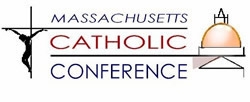Notes from the Hill: It’s Budget Time in Boston
Dollars, deals and debates signal spring’s arrival at the Statehouse in Boston, but the season goes by another name on Beacon Hill--budget time. It’s a season that makes optometrists happy, as it prompts many ink-weary eyes to scan a million lines of miniscule print in search of key words, phrases or digits.
Lobbyists and activists click new batteries into their mini-”funny business” detectors and portable rumor trackers, and flit from this whisper to that huddle. It’s a stretch during which anything can happen, and when historically everything has happened. It’s all about speed, surprise and surreptitiousness. Thus budget time is the moment for monitoring the murk and mystery of our government as it goes about the mad business of spending someone else’s money, and it often drives commentators into fits of alliteration.
As of the day of this report’s writing, issues once thought dead for the legislative session, such as casino gambling, threaten to be raised to new life, in the form of Senate budget amendments. The House has already passed its version of the budget. Unfortunately, fiscal developments and changes during this period flow at the speed of blackberries and blogs, leaving only blurs in the world of weeklies. What can only be reported here with confidence is what has already happened before these words were keyboarded. Two areas deserve mention.
First, Cardinal Seán P. O’Malley, Bishop George Coleman, Bishop Robert McManus and Bishop Timothy McDonnell wrote a letter to key legislators earlier this week urging funding support for a vital state program of last resort for older persons, children and persons with disabilities who are destitute. The Ordinaries of Boston, Fall River, Springfield and Worcester urged the chairmen of the House and Senate Ways & Means Committees, the budget’s prime authors, to increase funding for an account entitled ‘‘Emergency Aid to the Elderly, Disabled and Children.’’ The bishops pointed out that the program has not seen a monetary increase for 20 years, and the grant levels to eligible individuals have not kept pace with inflation. Current totals therefore will not meet anticipated cost of living and caseload increases, especially in light of the recent economic downturn. As indicated by the Massachusetts Coalition for the Homeless, “for many, their EAEDC grant is the only thing preventing them from becoming homeless and ending up in a shelter.” A legislative alert sent this past week from the Massachusetts Catholic Conference prompted citizens to support a Senate amendment backing an increase equal to that approved by the House.
Second, while other funding issues remained in play after the House budget was approved and sent to the Senate, concerning objectionable state programs dealing with family planning (read promotion of contraception and abortion) and diversity training for students (read promotion of “alternative lifestyles” and “non-traditional families”), there was one victory to report. A budget amendment in the House was defeated that would have revived the issue of mandating statewide requirements, crafted by Planned Parenthood, in public school sexuality education. A bill to implement the Massachusetts Health Frameworks had failed to get out of committee, and an attempt in the House to tack related language to the House budget was unsuccessful. When supporters failed to convince any senator to offer a similar amendment to the Senate’s budget, the matter was put to rest for this year.
Stay tuned, and if you have not done so already, sign up for MCC-Net e-mail legislative alerts by going to www.macathconf.org.
This is the text of the letter sent by the four Massachusetts ordinaries to the chairmen of the House and Senate Ways & Means Committees supporting a funding increase for a state program that serves as the last resort for older persons, children and persons with disabilities who are destitute--having less than $303 in monthly income and $250 in assets--and who are unable to support themselves because of their age or disability.
Dear Chairmen:
We write in support of Line Item 4408-1000, as included in House 4701, the bill proposing the state budget for Fiscal Year 2009 and adopted by the House of Representatives earlier this month. This provision would appropriate state funds to the Emergency Aid to Elders, the Disabled and Children (EAEDC) program, which provides cash and certain medical benefits to about 17,000 income-eligible individuals each year.
We are aware that the House approved the recommendation of the House Ways & Means Committee to increase funding for this program from $69.9 million in FY 2008 to $74.8 million in FY 2009. We are also aware that the Senate Ways & Means has recommended an increase to $71.98 million. We express our thanks to both Chairman DeLeo and Chairman Panagiotakos and their respective committees for recognizing the need for a funding increase. We believe that, for the following reasons, the final budget measure should authorize at a minimum the level of financial support passed by the House.
EAEDC is a vital program that serves some of the most vulnerable in the Commonwealth. It helps older persons and persons with disabilities coping with serious medical emergencies, including those affecting mental health. EAEDC assistance enables these persons to afford housing and to have their medical expenses covered while navigating the social security application process.
The program’s benefits have not been raised since 1988 and thus the currently allotted amounts fail to provide adequate coverage for basic needs, especially in light of the recent economic downturn. We are concerned that the level recommended by the Senate Ways & Means Committee may be insufficient to meet anticipated caseload and cost of living increases.
The best measure of a compassionate society is the degree to which it prioritizes the interests of those who require the greatest care. Our support for the EAEDC provision is motivated by this fundamental principle of good government.



















